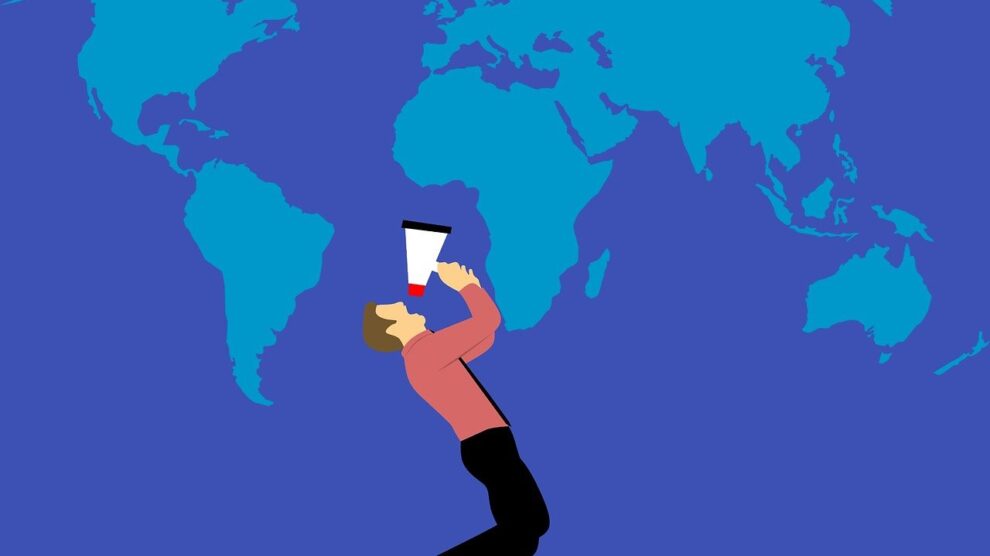Covid-19 has struck the entire world by surprise, leading to lockdowns and restrictions to travel that culminated in almost everybody locked inside their houses from March to May this year.
Now, six months later, it looks like it is happening all over again.
On this backdrop, and until the announced vaccine is actually delivered, how can small and medium enterprises still grow their businesses abroad?
While trade fairs are being cancelled around the world and travel is severely limited, supply chains have not been disrupted the way some people worried when the first restrictions were adopted at the top of the pandemic.
This means that, notwithstanding all obstacles, the global economy is still there.
Being notoriously flexible and adaptable, small and medium enterprises can still find opportunities to thrive.
Finding clients through intermediaries or networking events is much more difficult than it used to be. Yet with the three tools that I am going to discuss, any business should still be able to find foreign customers even in these troubled times.
Email Marketing
Email marketing campaigns are perhaps as old as the Internet. You might have tried one and it has not worked.
Why? Because the main problem with email marketing are the email addresses you use. Most times these are just generic addresses such as «info» or «hello». Therefore, your email does not reach your target audience and most likely goes directly in spam.
However, email marketing has greatly improved with Apollo.io, a provider of business email addresses in bulk.
You can filter by geography, industry, business role, and size. Once you have downloaded your list of leads, you can create your email marketing campaign using Mailchimp or something more sophisticated like Active Campaign.
While Apollo is a great tool, there are a couple of things to consider.
Apollo obtains the email addresses from LinkedIn. When somebody is on LinkedIn but does not show the email address, Apollo can only guess that person’s email.
Second, if somebody has not made the email public, they probably do not wish to be contacted by anyone.
Therefore, avoid at all costs spammy emails. A good way to do so it to do the following:
- Use content marketing
- Make the email as person specific as possible
If Facebook is the platform for friends, and Instagram for glamour, then LinkedIn is definitely the platform for business.
You might think that the only way to use LinkedIn for sales purposes is to upgrade to its premium services (one is actually called Sales Navigator).
But that is just part of the story.
A great way to use LinkedIn is through its groups. You can do that in two ways.
The first way is to use groups as marketplaces. Now, groups’ admins seldom appreciate their groups becoming bazaars. Yet, if you write a nice, clear, and detailed post with some good pictures of your product you will be fine. You can also contact other people that have posted on the group if you think they are a good fit for you.
For the second way you will have to put your hand to your wallet, although using groups should make it more effective than a standard campaign. I am talking about advertising on LinkedIn.
When you are launching your campaign, you will have to set your target audience, i.e. the type of people you want to see the ads. Usually, you have to manually set parameters such as geography, age, company role, etc.
Instead of doing all this, you can just tell LinkedIn to show your ads only to the people registered to the groups you mention.
For example, if you want to find a buyer of machinery in Brazil, you can either set the parameters and hope to catch a Brazilian buyer, or just set the ads for the group «Brazil machinery», «Buyers of machinery Brazil», «Machinery import Brazil». You get the idea.
Online Platforms
Digital B2B marketplaces are websites where buyers and sellers meet to trade.
The beautiful thing of online marketplaces is that people are there just to buy and sell. There is no social media or marketing content that you have to create. They are just big markets, and this is why they are so useful.
The only problem is that the world of such platforms can be messy, and you should know in advance where to look at. Some marketplaces are industry-specific, others are focused only on certain countries, yet others differ on the type of deal you are going to close.
Therefore, the first thing to do is to find the best possible market for your business. Then, choose a large marketplace focused on that market that offers the type of deal that you are looking for. That could be a standard sales contract, i.e. buy and sell single items or batches, or a partnership agreement, i.e. contract manufacturing, sales agency, or distribution agreement.
If you are looking to export to Asia, I have good news for you: Asia is definitely the place where online marketplaces are more consolidated.
The largest ones are Alibaba, Global Sources, DHgate, EC21, Tradekey, Asia Trade Hub, and go4WorldBusiness.
Instead of Asia, you may want to target the largest market on the planet, i.e. the United States.
The most relevant American marketplaces are Thomasnet, eWorld Trade, Wholesale Central, and Kinnek.
Last but not least, there is Europe, the world’s largest trading bloc. You will find European businesses on Enterprise Europe Network, Opportunity Network, Globartis, and UpinSales.
Conclusions
The current pandemic and the limitations that it entails may have made international trade as we once knew more difficult.
While we cannot wait to return to our usual habits, including flying abroad in search of business opportunities and new contacts, there is no reason to pause your business expansion.
On the contrary, with the tools that I have described, you can immediately start looking for new buyers and outperform competitors that are slow to adapt to this new environment.





